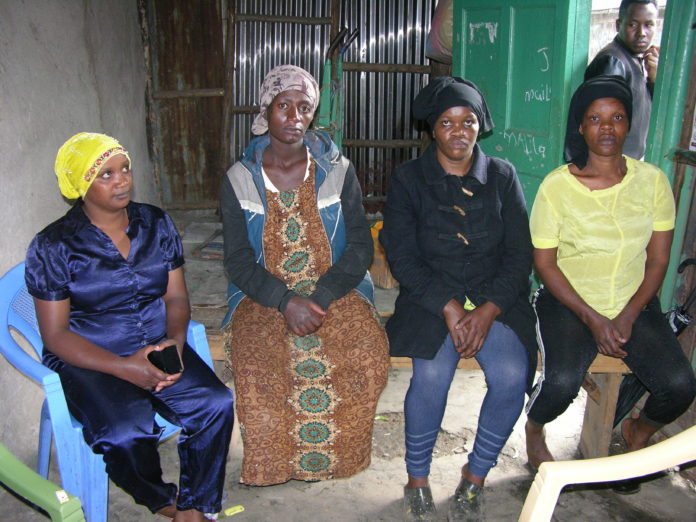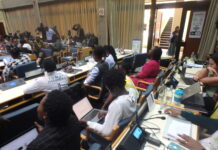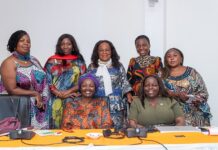By Mary Mwendwa
Nairobi, Kenya: Women play direct and indirect roles in violent extremist groups, such as al- Shabaab. On one hand, they are part of the recruiters, sympathizers, domestic workers, and spouses of extremist fighters. On the other hand, women are also involved in preventing violent extremism for example through support groups. However, these different roles of women have not been given much attention by organizations and governments involved in countering extremism.
In Kenya, since the government sent the Kenya Defence Forces (KDF) into Southern Somalia in 2011, there have been a series of attacks, which al-Shabaab claimed responsibility for. Some of the major attacks have been the 2013 West Gate Mall shooting, where at least 67 lives were lost, the 2015 attack at the Garissa University, where gunmen stormed the University College, killing almost 150 people and wounding several others, and the latest taking place in 2019, where four gunmen attacked the DusitD2 complex killing 21 people and injuring several others.
In all these attacks women were involved. However, very little has been shared about their involvement and hence there is a need to dig deeper in order to understand their role in violent extremism.
This is what I set myself as a goal and thus I embarked on a research mission in Kenya to understand the role women play in extremism. I featured one of the recruitment grounds for terrorist groups in one of Nairobi’s informal settlements known as Majengo located east of Nairobi.
To understand the issue better, I engaged community-based groups, women self-help groups, where focus group discussions were done, and one-on-one interviews with friends and families who have lost their loved ones to al-Shabaab.
I sampled the interviewees randomly depending on their willingness to share their stories. I encountered some people that feared even talking to me at all because they thought they would be targeted by security officers to give them more information, while others had no problem sharing their stories about extremism.
Majengo is not just an ordinary informal settlement area. Armed gangs, pickpockets, cheap prostitutes, and mobile phone snatchers are always preying on new faces in the vicinity. Security raids in search of al-Shabaab sympathizers, recruiters, and returnees are the order of the day.
People here always speak in low tones, they are skeptical to be photographed or interviewed journalists. It is always a hard task to gain their trust and for them to be interviewed and open up.
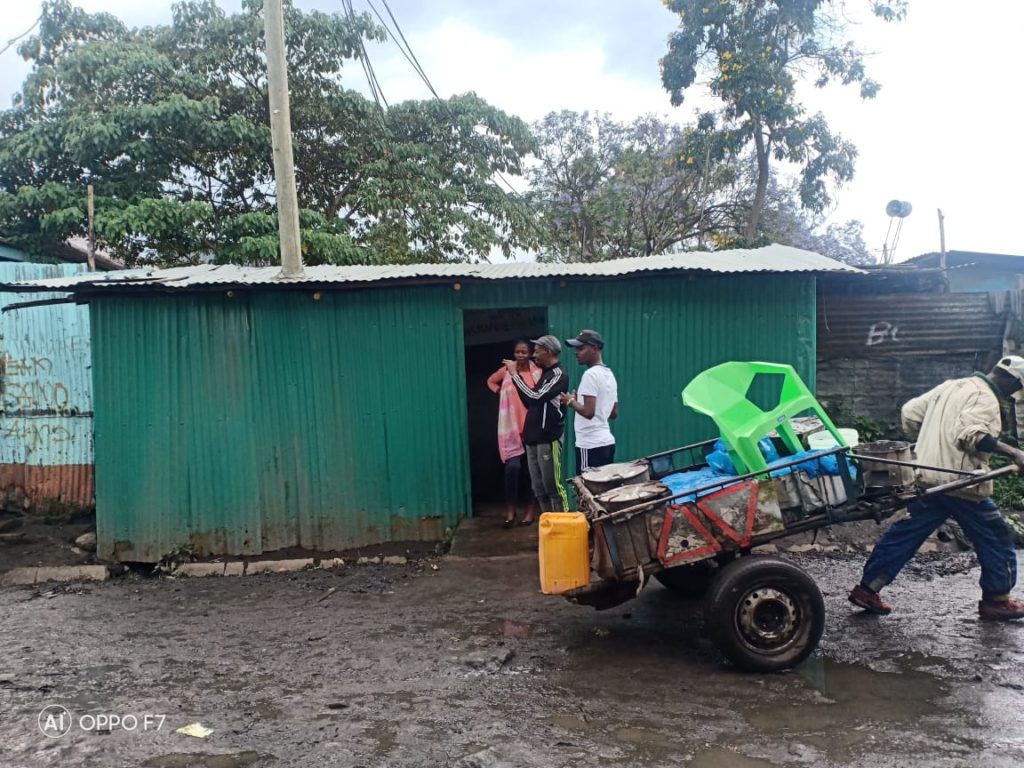 Kacpen offices in Majengo.
Kacpen offices in Majengo.
As the author and researcher of this article, I had to put on hold this assignment for some time, because the Kenyan Defence Forces raided and zoned Majengo for a couple of weeks after a tip-off that a terror group was hiding in Majengo. Residents confined in me that whenever any intelligence information is released about al-Shabaab, they are the first to feel the heat. They are targeted, some arrested and some people just disappear and are never to be traced. Many confessed that radicalization and recruitment to extremist groups such as al-Shabaab are common.
Many even said that after interviews with the media some of their family members went missing. They believe this is some sort of intelligence that helps the security agencies target them.
For anyone to access any form of an interview, they have to go through community-based organizations. The interviews will always have certain conditions; including not taking photographs, or in some instances not quoting names.
In Manjengo, women, children, and youths co-exist in harmony. A majority are Muslims, while a large number of Christians dress like Muslims. As a result, it is not easy to differentiate a Muslim from a Christian. Both dress similar and speak fluent Swahili with the coastal ascent.
This allows them to mingle and relate easily. For example, many Christian women will tell you that they find it easy to wrap their heads with scarves because when they mix with their fellow Muslims it becomes easier to relate to each other. No one forces them but it just comes naturally.
Majengo informal settlement in East of Nairobi has been in the spotlight since the popular Al- Qaeda linked movement known as al-Shabaab became a thorn in the flesh for Kenyan citizens. There have been several attacks that have seen many people injured and lives lost.
Majengo is known to be one of Kenya’s oldest informal settlement areas that have been in existence since the late 1920s. It is infamous for prostitution, criminal gangs, early marriages, poor infrastructure, poverty and, recruitment of al-Shabaab.
In the midst of all this, women have either disappeared under mysterious circumstances and believed to have gone to Somalia to join al-Shabaab or have played a positive role in preventing youths to join the terror groups. They are actively involved in peace processes to restore sanity in Majengo. Women have formed groups that promote peace and economic empowerment projects and also talk to youths about the dangers of joining terror groups.
Many families in Majengo have reported youths, both women and men missing. Some are believed to have joined al-Shabaab while some just disappeared. Most of those that disappear never come back, they either die in the line of their work or get held hostage. Their families suffer emotionally from their loss, and for those that do return, life is a struggle, with many suffering from trauma and difficulties to find their way back into society.
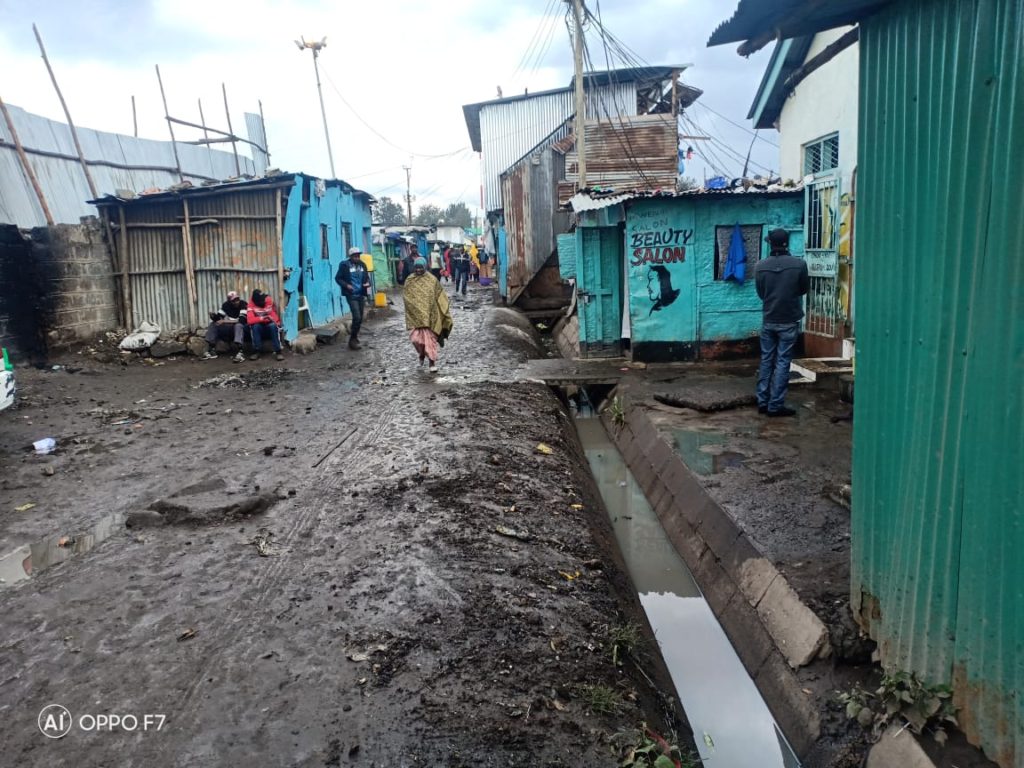 A street in Majengo.
A street in Majengo.
In the course of my research, I was fortunate enough to be able to speak to Fatuma Njoki, a 26 years old woman, living in Majengo. She recounts how she lost her best friend to the terror group. To her, this was the saddest thing that ever happened to her friend. A few years ago, her best friend had problems at home, their family did not have enough food, her parents struggled to pay for her school fees.
Due to the hard life, she was facing, she was so frustrated. “We used to go to the market together and also watch football together. She confined to me many things, especially the poverty-related problems that her family had to face.”
Njoki reveals that after some time her friend started distancing herself from her. She converted to be a Muslim and started pulling away from her. She no longer showed interest in visiting her. “I got worried, the more I tried to get closer to her, the more she pulled away. There were times when I would go to her home and she would tell her siblings to inform me that she was not around. I finally gave up on her and started minding my own business.”
“After a few weeks, word started going around that she had joined al-Shabaab in Somalia. We hear stories that women who go and join the group help in cooking and other domestic chores for the terror group. She didn’t tell her mother or anyone else about her plans. We have never heard from her till today, I hope one day I will meet her alive.” a frazzled Njoki reveals.
In the same neighborhood, Sakina Bakari who is a widow in her late 50s has sleepless nights because of her daughter who went missing in 2014. She begins to narrate to me about her darkest moments in life. “My daughter had just cleared class eight, she had performed quite well. I didn’t have money to take her to high school. I was involved in a small business to help me raise some money to take my daughter to school to pursue further education. She was the only hope I had as my husband died when she was very young.” A teary Bakari wipes her tears with a black scarf tied around her neck.
Bakari continues to narrate how her daughter became radicalized. “We belong to the Islam religion, but my daughter started behaving in a way that made me worried. She became so strict with her prayers and started hating on anyone who was not Muslim. She had Christian friends whom she cut ties with. One day she told me that she was going to work in Mombasa. I inquired about the work she was going to do but she refused to give further details. The following morning, she just left as if she was going for a walk. That was the last time I saw her.”
Bakari shakes her head as a thin line of tears drop on her right cheek as she recounts the sweet moments she shared with her daughter. She later started hearing rumors from neighbors that her daughter was radicalized and recruited to join the terror group al-Shabaab in Somalia.
“These rumors broke my heart. I had no way to verify them, but as the days and years went by, I started to believe that my daughter went to join al-Shabaab. We have no form of communication. I hold on to hope that one-day things will turn to my advantage and I can see her. The worst that can ever happen is to never see her again.”
Similarly, Joseph Odhiambo who is now the chairman of public vehicles Sacco that ply the Gikomba Market route next to Majengo, reveals how he lost a dear friend through terrorism and radicalization. His friend joined al-Shabaab in Somalia.
“I had a close friend. We grew up together and loved each other, we could go to the mosque together on Fridays and Sundays we could go to church together. A few years ago, I lost him to al-Shabaab, I still mourn him to date. Asman was not looking for money but there was a spiritual void in him. I do not know what actually happened, but when he was going to Somalia he called me and told me that he was going to help his brothers and sisters in Somalia. He said that he was going to help them fight, I asked him why and he said that he had an obligation to go and help. I wished him well and he left.
Asman stayed for like two years. When Kenya sent forces to Somalia, it became difficult for him to return. He could come back after some time, but after the forces went to Somalia it was very hard for him to come.”
Odhiambo also discloses that it is alleged that the proceeds of the money collected from Gikomba stalls, owned by many guys in Majengo, is used to support families affected by terrorism especially those that have lost their loved ones to al-Shabaab.
“The last time my friend came, he used the Tanzanian route and went to stay with his in-laws. He stayed there for many months. He was later arrested and brought to Kenya. He was released and ordered to report to the police station every day.”
“One day he was walking with his children when two men, who looked like security officers, confronted and arrested him. He stayed in custody for a week and was later released. He became so worried and decided to relocate to another state, Umoja. Two months later, he was going for evening prayers with his two young children. Two police officers approached him and told the children to go home. He was blindfolded and shot at close range, eyewitnesses told us. I lost my best friend.” A dejected Odhiambo signs off.
Odhiambo and other residents of Majengo may not be aware of the existence of regional peace treaties in place. But, at the continental level, matters of peace and security have led to the development of several treaties and strategies on peace and security through the African Union, such as under the Agenda 2063’s flagship project “Silencing the Guns by 2020”.
These treaties and strategies can improve the situation, through commitments by governments to fight extremism. An important factor is the incorporation of women in the fight against extremism. The treaties and strategies are also initiating programs and projects that will help prevent acts of violent extremism among youths and women in Majengo.
The African Union, through the Silencing the Guns Project by 2020, has been working with women in promoting peace. This is anchored on the Agenda 2063 framework that recognizes the role women play in development matters in Africa.
These efforts are expected to impact women like those living in Majengo. It is expected together with other regional frameworks, women in Majengo will be able to enjoy peace development processes. For now, they have not yet benefited from these frameworks, this research is expected to be an eye-opener that will lead to action.
Kenya, as a member of the AU, continues to suffer the effects of extremism after Kenyan soldiers were sent to Somalia to help in peacekeeping. The coastal region and Nairobi’s Majengo have been in the spotlight because of reports on radicalization, financing, and sympathizers of the al-Shabaab terror group.
Cases of women participating and sympathizing with terror groups are increasingly becoming common in Kenya. However, little is being done in terms of targeted programs that will help young girls understand the dangers of joining extremist groups. Women that join al-Shabaab may become sex slaves to the men of the terror group, be used as domestic slave workers without any pay, and some are even killed. They are often promised good deals of pay which they never receive.
It is now palpable that Majengo does not only suffer the harsh reality of men joining terror groups but also women who are joining terror groups. During this research, it emerged that there are several reasons why women join terror groups or get involved with them. They include firstly, poverty and religion, and secondly the lack of knowledge on terrorism.
Many interviewees confined in me that many women have been recruited without sufficient knowledge of how terror groups operate. They were cheated to be going there for good job offers but instead landed in the hands of terror groups like al-Shabaab. It became clear that there needs to be a deliberate effort through capacity building programs for women and girls to be educated on the issue.
Support groups
Some programs like this already exist now. One of them is the self-help group Ummul. Ummul, for example, is working closely with women, by empowering them through table banking and soft loans to improve their economic status. The group was founded in 2014 and now has a membership of 22 women. The women are involved in small businesses, which helps them to get some economic empowerment in Majengo.
This group saw the need to start a project among women living in Majengo. They realized poverty as one of the contributors to some of the criminal behavior in Majengo. Mariam Mohammed, chairlady of the group confessed that poverty is a reality in Majengo. “Many people are poor here, that is why youths are swayed and convinced to join terror groups. We are working with women to help them make some money and allow them to empower their children to go to school.”
Mariam says that women are disproportionately affected by poverty. “Women are tasked to be homemakers and when poverty strikes, they become so vulnerable. We have been hit by effects of extremism in this land, we have witnessed our youths, both girls and boys disappear and go to join extremist groups as a way of running away from poverty. Many have returned frustrated and traumatized because of what they went through in Somalia.”
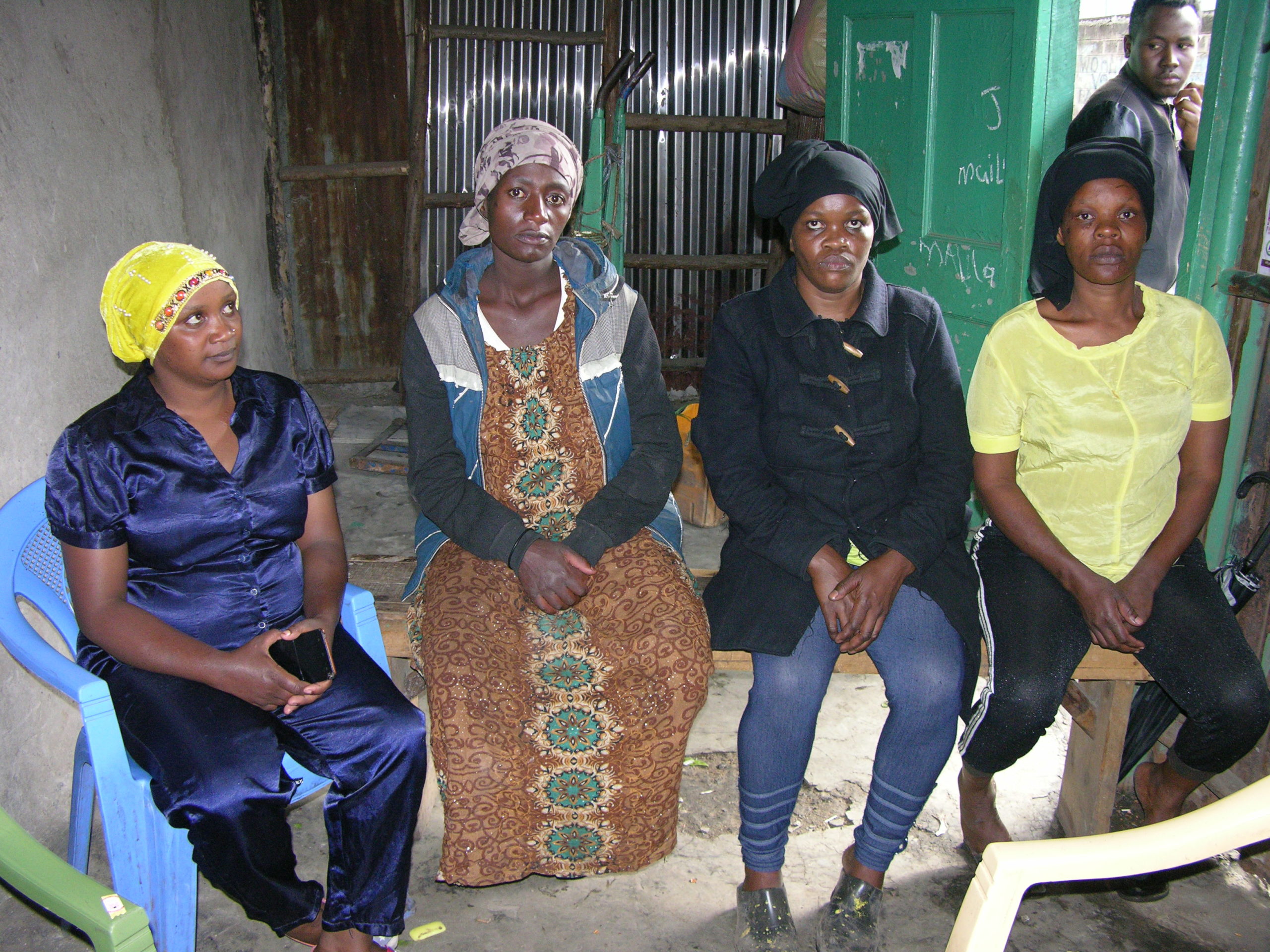
Ummul self-help group is among many initiatives that women in Majengo have started to help fight poverty and other related issues that make their youths vulnerable to radicalization and extremism.
The groups working on this issue are able to reach a large number of women in Majengo. However, they revealed that they need more training to allow them to also train other women who are not among their members yet.
Salim Juma who is the Executive Director for Kamukunji Peace Network(KACPEN), confirms how they have been working with the community in Majengo on peace matters. He also says that they have been giving emotional support to al- Shabaab returnees. Salim agrees that radicalization and disappearances of youths believed to have gone to join al-Shabaab are a reality in Majengo.
“We keep getting reports that youths have disappeared. We plan for pieces of training to help these youths understand the dangers of joining extremist groups. It is a hard task because we are always on the radar of security agencies. We live in fear because anytime an attack happens in any part of Kenya the first place to feel the impact is here. We get raided and interrogated. It is not easy to live and work with the community here, but we are dedicated to seeing a change.”
George Musamali, a security expert in Kenya believes that women play a major role in extremism. “We have heard of women financing and being actively involved in the recruitment of extremist groups. Internationally, the first terror group that was identified in Germany in 2011 is the radical right terrorist group “Nationalsozialistischer Untergrund” (“National Socialist Underground”) (NSU). A woman, Beate Zschäpe, had been a key member of the group. In Kenya, we had the case of the white widow who was linked to terror attacks in Kenya, and also in the 2019 Dusit attack, a couple of women were reported to be behind the attack.”
Musamali continues to note that women are no longer only victims of terrorism, even if they are still disproportionately affected by it. “They have been for a long time considered as innocent. Reports reveal that women get married to terror suspects knowingly and participate actively in attacks. We should, therefore, shade a spotlight on women and treat them as suspects.’’
“The government should come up with programs that target women and youths especially in affected areas like Majengo in Nairobi. These programs should target those youths that are not yet radicalized because it is becoming easy to recruit young girls in extremist groups. Having said this, boys should not be left behind.”
In conclusion, throughout my research, I have found that women play a big role in extremism. It has become clear that they need support. This could be in the form of targeted programs, outreach projects in schools and institutions for example, and economic empowerment programs. With this support, women would be able to improve their livelihoods and reject the idea of joining extremist groups.
Mary Mwendwa is a Kenyan journalist based in Nairobi. She writes about Women, Peace, Health, and Agriculture among other development-related stories.
Email: mary41044@gmail.com
Twitter: marymwendwa
This article was supported through the Silencing the Guns award given by the African Union Commission in cooperation with African Women in the Media and the German Development Cooperation (GiZ).

